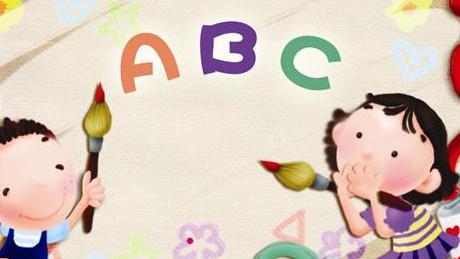 返回
教育头条
返回
教育头条

少儿英语三大从句解析
在初中少儿英语中,主要有三大从句,即宾语从句、定语从句、状语从句(包括时间、条件、结果、目的、原因、让步、地点、方式等)。今天小编和大家一起学习一下。
1宾语从句
一、定义
在句子中起宾语作用的从句叫做宾语从句。
二、连接词
that: I think that you can pass the exam.
Whether/if: I don’t know what the word means.
“Wh”: I don’t know what the word means.
I don’t know where he found the book.
只用whether的情况:
1. 与or not连用:
I don’t know whether it’s raining or not.
2. 与动词不定式连用:
He doesn’t know whether to accept the invitation.
3. 连接词前有介词时:
It depends on whether he is coming.
三、时态
1. 主句是一般现在时态,从句根据实际情况而定(各种时态均可)
She wants to know what he has done for the exam.
2.主句是一般过去时态,从句用相应的过去的时态。
1)She said that she was a student.
2)She said that she would fly to Japan in a week.
3)She said that she had finished her homework already.
3. 如果宾语从句说的是客观真理、自然现象或事实时,这时宾语从句要用一般现在时态。
The teacher said that the earth goes round the sun.
2定语从句
一、定义
在复合句中修饰名词、代词的从句叫定语从句。
二、先行词
先行词指人 who /that
先行词指物 which/ that
定语从句一般紧跟被修饰的名词或代词(即先行词)后
三、关系代词
关系代词代替先行词在句子中担当成分,所以从句中不可再出现其他代替先行词的代词
四、翻译方法 “…. 的”
Whom:先行词指人,则代替先行词在定语从句中充当宾语(包括介词的宾语), 与who的区别是如果前面带介词则必须用whom
1. This is the teacher whomwho we like best.
2. I don’t like the boy to whom you are talking.
Whose :指人或物,作定语,表示 “…的”
eg: Harry is the boy whose mother is our math teacher.
关系代词只能 that 的特殊情况:
1.先行词前有序数词修饰时:
This is the first gift that my parents bought me.
2.先行词前有形容词,高级修饰时:
This is the most exciting film that I have ever seen.
3. 先行词是不定代词something,anything等时.
e.g. Isthereanythingthatyouwantinthisshop
4. 先行词是人和物时, 用that.
e.g. Hetalkedaboutsomewritersandbooksthat wereunknowntousall.
5. 先行词被all , little , the only , the very(就是,正是), the last 等词修饰时,只能用that
e.g. This is the last place that I want to visit.
6. 特殊疑问句以who 或which 开头,只能用that引导.
Who is the girl that is making a speech on the platform?
当关系代词前使用介词时:物 介词 which ; 人 介词 whom
当关系代词前使用介词时:
e.g. 1. This is the train by which we went to Beijing.
2. This is the teacher to whom my mother is talking.
3状语从句
一、定义
在复合句中由从句表示的状语称作状语从句,它可以用来修饰谓语(包括非谓语动词)、定语或状语,或是整个句子。
二、状语从句一般分为八大类
时间状语从句 地点状语从句
原因状语从句 目的状语从句
结果状语从句 条件状语从句
方式状语从句 让步状语从句
1. 时间状语从句
When ---当……时候,通常指某一特定的时间点,主句与从句的动作同时发生。
When I opened the window, I saw him come up.
When---正在……的时候,突然…。通常主句是进行时或 be about to 时,在翻译的时候,when 可以译成没想到或突然。
I was walking along the street , when I met him.
When 当从句是进行时,主句是一般时,往往表示不满。
Someone knocked at the door when I was having breakfast.
When=after
When the children had gone to bed, she began to prepare her lessons.
While---在……期间,往往指一段时间。
While we were inAmerica, we saw him twice.
While ---表示一种不满情绪,意思是这边在干某种重要的事,而另一边在享受等。
We are cleaning the classroom while they are playing the football.
As--- 一边……一边, 随着
She was doing her homework as she was listening to the music.
As --- 当……时,指一个动作紧接着一个动作发生,从句通常用进行时。
As I was going out, it began to rain.
The moment--- 一……就……=as soon as , immediately,
---Did you remember to give Mary the money you owed her?
---Yes, I gave her the moment I saw her.
Not… until---直到……才
He didn’t leave the office until he finished the work.
Before---在……之前
The passengers should arrive at the airport an hour before the flight departs.
After---在…… 之后
The customer left the ticket counter after he had a quarrel with the ticket agent.
Since---自从……, 通常主句用现在完成时
I have never been there again since I graduated from the university.
It is just a week since we arrived here.
As soon as---一……就……
Jack went to school as soon as he got well.
No sooner than---一……就……
no sooner… than… 用于句首要求倒装
Hardly …when…
Scarcely …when…
No sooner had he arrived than he went away again.
Once ---一但……就……
Once you see him, you will never forget him.
Every time, each time每次whenever每当
Each time he came to town, he would visit our school.
2. 条件状语从句
引导状语从句的连接词有:
If如果, unless除非, as long as只要, As (so) far as --- 据……所知,in case万一, provided that假如, on condition that若是,以…为条件
If---如果
If you don’t hurry up, you will miss the plane.
Unless--- 如果不, 除非=if not
We can’t get there on time unless we book the earliest flight
As long as--- 只要
We will succeed as long as we keep on trying.
As (so) far as--- 据……所知
As far as I know, he speaks English very well.

In case--- 假使, 如果
The plane cannot take off in case it rains.
Provided that如果,有时省略 that
The plane will be in good condition provided that it is taken care of carefully.
On condition that--- 条件是…
He said that he would come to the meeting on condition that no one asked him to speak.
注:主从句的动作发生在将来时,则主句用将来时, 从句用一般现在时。
If he arrives tomorrow, I will be waiting for him at the airport.
3. 地点状语从句
地点状语从句只有两个连词: Where, wherever
Where--- 在……地方
Where there is a will, there is a way.
Wherever--- 无论哪里
Wherever you are, I will be right there waiting for you.
4. 原因状语从句
because, as, since, now that, 和considering that, seeing that 这六个连词都用于表示表示原因, 但在语气上一个比一个弱.
Because--- 因为,通常从句放在主句后.
Mr Smith was very upset because he couldn’t find his luggage.
As--- 因为, 通常放在句首
As he is honest and modest, all his friends like him.
Since---既然 因语气较弱, 常译为既然(众所周知的原因)
Since everybody has come, we can set off.
Now that--- 既然
Now that you are here, you can join us.
considering that--- 顾及到
Considering that they are just beginners, they are doing quite a good job.
seeing that--- 由于
Seeing (that) quite a few people were absent, we decided toput the meeting off.
5. 结果状语从句
引导结果状语从句的连词有:that, so that, so…that…
such…thatSo… that--- 太……以至于so 后面应用形容词或副词, 有时省略so只用that
Boeing 747 is so large that people like to call it jet bomb喷气炸弹.
So that--- 因而,以便,为了 有时so 可以省去
Speak louder please so that the people at the back can hear you.
Such …that…---太……以至于 用法与so…that相同,但such 后面应用名词。
The foreign visitor was such a fast speaker that nobody could understand him.
6. 目的状语从句
引导目的状语从句的主要连词有: that, so that, in order that, for fear that, lest
(So) that --- 以便,从句中常常使用一些情态动词,如:can, could, may, might, should等
Let’s take the front seats (so) that we may see more clearly.
in order that --- 为了,与so that 相同从句中常常使用一些情态动词,如:can, could, may, might, should等
School was closed early in order that the children might go home ahead of the storm.
for fear that--- 生怕; 为了防止(某事发生)
He took the name down for fear that he should forget it.
in case--- 万一
You should bring a dictionary in case you need it.
Lest--- 以防万一
The man decided to tell his boss the fact lest he would be angry with him.
7. 让步状语从句
引导让步状语从句的连词有:Although, though, as, even if, even though, no matter, however, whatever, while, whether.
Although, though ---虽然although 和though 可以互换,但although 常放在句首。Though可以用于倒装。
Although it was raining, the plane managed to take off.
Though he did his best, he didn’t succeed.
As --- 尽管 as 引导让步状语从句时,句子通常倒装。可与though 互换。
Busy as he is, he never misses a football match.
Even if /even though---即使
Even if you don’t like your boss, you should do your work.
However--- 不论,however 引导让步状语从句时,句子通常倒装
He couldn’t get there on time however fast he drove.
No matter (what, when, where, how)---无论(什么,何时,何地,怎样)
He wouldn’t forgive me no matter how hard I begged him.
Whatever--- 不管
Whatever other people may say, she won’t change her mind.
While---尽管
While I have sympathy for you, I can’t help you.
Whether---不管,常与or not 连用
Whether he is good or not, the company decided to send him abroad.
8. 方式状语从句
方式状语从句常由: as, as if, as though
as---与…… 一样
Do in Rome as the Romans do.
as if, as though--- 仿佛,由as if或 as though引导的从句中可用虚拟语气
She stood at the door as if (=as though) she were waiting for someone.
1宾语从句
一、定义
在句子中起宾语作用的从句叫做宾语从句。
二、连接词
that: I think that you can pass the exam.
Whether/if: I don’t know what the word means.
“Wh”: I don’t know what the word means.
I don’t know where he found the book.
只用whether的情况:
1. 与or not连用:
I don’t know whether it’s raining or not.
2. 与动词不定式连用:
He doesn’t know whether to accept the invitation.
3. 连接词前有介词时:
It depends on whether he is coming.
三、时态
1. 主句是一般现在时态,从句根据实际情况而定(各种时态均可)
She wants to know what he has done for the exam.
2.主句是一般过去时态,从句用相应的过去的时态。
1)She said that she was a student.
2)She said that she would fly to Japan in a week.
3)She said that she had finished her homework already.
3. 如果宾语从句说的是客观真理、自然现象或事实时,这时宾语从句要用一般现在时态。
The teacher said that the earth goes round the sun.
2定语从句
一、定义
在复合句中修饰名词、代词的从句叫定语从句。
二、先行词
先行词指人 who /that
先行词指物 which/ that
定语从句一般紧跟被修饰的名词或代词(即先行词)后
三、关系代词
关系代词代替先行词在句子中担当成分,所以从句中不可再出现其他代替先行词的代词
四、翻译方法 “…. 的”
Whom:先行词指人,则代替先行词在定语从句中充当宾语(包括介词的宾语), 与who的区别是如果前面带介词则必须用whom
1. This is the teacher whomwho we like best.
2. I don’t like the boy to whom you are talking.
Whose :指人或物,作定语,表示 “…的”
eg: Harry is the boy whose mother is our math teacher.
关系代词只能 that 的特殊情况:
1.先行词前有序数词修饰时:
This is the first gift that my parents bought me.
2.先行词前有形容词,高级修饰时:
This is the most exciting film that I have ever seen.
3. 先行词是不定代词something,anything等时.
e.g. Isthereanythingthatyouwantinthisshop
4. 先行词是人和物时, 用that.
e.g. Hetalkedaboutsomewritersandbooksthat wereunknowntousall.
5. 先行词被all , little , the only , the very(就是,正是), the last 等词修饰时,只能用that
e.g. This is the last place that I want to visit.
6. 特殊疑问句以who 或which 开头,只能用that引导.
Who is the girl that is making a speech on the platform?
当关系代词前使用介词时:物 介词 which ; 人 介词 whom
当关系代词前使用介词时:
e.g. 1. This is the train by which we went to Beijing.
2. This is the teacher to whom my mother is talking.
3状语从句
一、定义
在复合句中由从句表示的状语称作状语从句,它可以用来修饰谓语(包括非谓语动词)、定语或状语,或是整个句子。
二、状语从句一般分为八大类
时间状语从句 地点状语从句
原因状语从句 目的状语从句
结果状语从句 条件状语从句
方式状语从句 让步状语从句
1. 时间状语从句
When ---当……时候,通常指某一特定的时间点,主句与从句的动作同时发生。
When I opened the window, I saw him come up.
When---正在……的时候,突然…。通常主句是进行时或 be about to 时,在翻译的时候,when 可以译成没想到或突然。
I was walking along the street , when I met him.
When 当从句是进行时,主句是一般时,往往表示不满。
Someone knocked at the door when I was having breakfast.
When=after
When the children had gone to bed, she began to prepare her lessons.
While---在……期间,往往指一段时间。
While we were inAmerica, we saw him twice.
While ---表示一种不满情绪,意思是这边在干某种重要的事,而另一边在享受等。
We are cleaning the classroom while they are playing the football.
As--- 一边……一边, 随着
She was doing her homework as she was listening to the music.
As --- 当……时,指一个动作紧接着一个动作发生,从句通常用进行时。
As I was going out, it began to rain.
The moment--- 一……就……=as soon as , immediately,
---Did you remember to give Mary the money you owed her?
---Yes, I gave her the moment I saw her.
Not… until---直到……才
He didn’t leave the office until he finished the work.
Before---在……之前
The passengers should arrive at the airport an hour before the flight departs.
After---在…… 之后
The customer left the ticket counter after he had a quarrel with the ticket agent.
Since---自从……, 通常主句用现在完成时
I have never been there again since I graduated from the university.
It is just a week since we arrived here.
As soon as---一……就……
Jack went to school as soon as he got well.
No sooner than---一……就……
no sooner… than… 用于句首要求倒装
Hardly …when…
Scarcely …when…
No sooner had he arrived than he went away again.
Once ---一但……就……
Once you see him, you will never forget him.
Every time, each time每次whenever每当
Each time he came to town, he would visit our school.
2. 条件状语从句
引导状语从句的连接词有:
If如果, unless除非, as long as只要, As (so) far as --- 据……所知,in case万一, provided that假如, on condition that若是,以…为条件
If---如果
If you don’t hurry up, you will miss the plane.
Unless--- 如果不, 除非=if not
We can’t get there on time unless we book the earliest flight
As long as--- 只要
We will succeed as long as we keep on trying.
As (so) far as--- 据……所知
As far as I know, he speaks English very well.

In case--- 假使, 如果
The plane cannot take off in case it rains.
Provided that如果,有时省略 that
The plane will be in good condition provided that it is taken care of carefully.
On condition that--- 条件是…
He said that he would come to the meeting on condition that no one asked him to speak.
注:主从句的动作发生在将来时,则主句用将来时, 从句用一般现在时。
If he arrives tomorrow, I will be waiting for him at the airport.
3. 地点状语从句
地点状语从句只有两个连词: Where, wherever
Where--- 在……地方
Where there is a will, there is a way.
Wherever--- 无论哪里
Wherever you are, I will be right there waiting for you.
4. 原因状语从句
because, as, since, now that, 和considering that, seeing that 这六个连词都用于表示表示原因, 但在语气上一个比一个弱.
Because--- 因为,通常从句放在主句后.
Mr Smith was very upset because he couldn’t find his luggage.
As--- 因为, 通常放在句首
As he is honest and modest, all his friends like him.
Since---既然 因语气较弱, 常译为既然(众所周知的原因)
Since everybody has come, we can set off.
Now that--- 既然
Now that you are here, you can join us.
considering that--- 顾及到
Considering that they are just beginners, they are doing quite a good job.
seeing that--- 由于
Seeing (that) quite a few people were absent, we decided toput the meeting off.
5. 结果状语从句
引导结果状语从句的连词有:that, so that, so…that…
such…thatSo… that--- 太……以至于so 后面应用形容词或副词, 有时省略so只用that
Boeing 747 is so large that people like to call it jet bomb喷气炸弹.
So that--- 因而,以便,为了 有时so 可以省去
Speak louder please so that the people at the back can hear you.
Such …that…---太……以至于 用法与so…that相同,但such 后面应用名词。
The foreign visitor was such a fast speaker that nobody could understand him.
6. 目的状语从句
引导目的状语从句的主要连词有: that, so that, in order that, for fear that, lest
(So) that --- 以便,从句中常常使用一些情态动词,如:can, could, may, might, should等
Let’s take the front seats (so) that we may see more clearly.
in order that --- 为了,与so that 相同从句中常常使用一些情态动词,如:can, could, may, might, should等
School was closed early in order that the children might go home ahead of the storm.
for fear that--- 生怕; 为了防止(某事发生)
He took the name down for fear that he should forget it.
in case--- 万一
You should bring a dictionary in case you need it.
Lest--- 以防万一
The man decided to tell his boss the fact lest he would be angry with him.
7. 让步状语从句
引导让步状语从句的连词有:Although, though, as, even if, even though, no matter, however, whatever, while, whether.
Although, though ---虽然although 和though 可以互换,但although 常放在句首。Though可以用于倒装。
Although it was raining, the plane managed to take off.
Though he did his best, he didn’t succeed.
As --- 尽管 as 引导让步状语从句时,句子通常倒装。可与though 互换。
Busy as he is, he never misses a football match.
Even if /even though---即使
Even if you don’t like your boss, you should do your work.
However--- 不论,however 引导让步状语从句时,句子通常倒装
He couldn’t get there on time however fast he drove.
No matter (what, when, where, how)---无论(什么,何时,何地,怎样)
He wouldn’t forgive me no matter how hard I begged him.
Whatever--- 不管
Whatever other people may say, she won’t change her mind.
While---尽管
While I have sympathy for you, I can’t help you.
Whether---不管,常与or not 连用
Whether he is good or not, the company decided to send him abroad.
8. 方式状语从句
方式状语从句常由: as, as if, as though
as---与…… 一样
Do in Rome as the Romans do.
as if, as though--- 仿佛,由as if或 as though引导的从句中可用虚拟语气
She stood at the door as if (=as though) she were waiting for someone.
上述就是教育宝头条介绍的少儿英语三大从句解析完整信息,想要查看更多的少儿英语资讯,敬请关注我的微信18560125702,还可免费获取学习攻略哦!返回教育宝头条
【免责声明】本文仅代表作者本人观点,与教育宝无关。教育宝对文中陈述、观点判断保持中立,不对所包含内容的准确性、可靠性或完整性提供任何保证。请读者仅作参考,特此声明!





